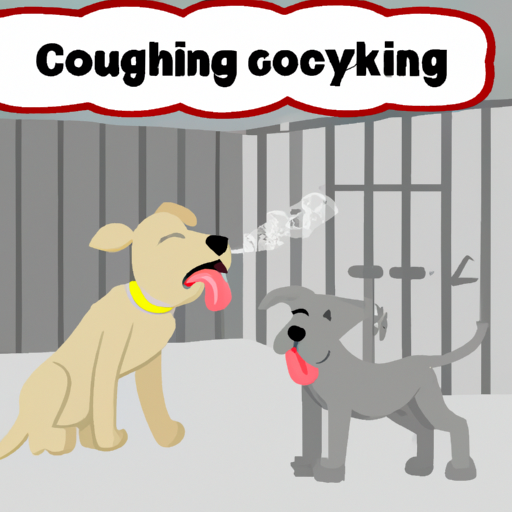Introduction
You’re a caregiver, and that’s not just limited to humans. You care for your pets just as much as for your family, and nothing weighs heavier on your heart than seeing your beloved dog suffering from any illness. One such afflictive condition is kennel cough. It’s crucial for you to understand how this disease spreads, its symptoms, treatment, and preventive measures for your dog’s well-being.
What is Kennel Cough?
Kennel cough, also known as canine infectious tracheobronchitis, is a highly contagious respiratory disease. Dogs commonly contract it through airborne droplets, direct contact with infected dogs, or contaminated surfaces.
Think of it as a kind of cold that we, humans, catch when someone sneezes nearby, or we touch something a sick person has handled. Similarly, your dog can get kennel cough from parks, obedience classes, boarding kennels, or any place frequented by other dogs.
How Does Kennel Cough Spread?
Understanding the transmission of kennel cough is vital to prevent its spread and protect your dog. Here are three primary ways:
-
Airborne Droplets: When an infected dog coughs, sneezes, or barks, it releases airborne droplets carrying the bacteria and viruses causing kennel cough. If your dog inhales these droplets, it might contract the disease.
-
Direct Contact: Dogs are social animals. They sniff, lick, and interact with other dogs. During such interactions, if the other dog is infected, your dog might catch the disease.
-
Contaminated Surfaces: The bacteria and viruses causing kennel cough can survive on surfaces for a considerable amount of time. If your dog comes into contact with these contaminated areas, it can get infected.
Symptoms of Kennel Cough
Now that you know how kennel cough spreads, you should be aware of its symptoms. Here’s a list to help you out:
- Persistent, forceful cough
- Sneezing and snorting
- Runny nose
- Loss of appetite
- Lethargy
- Fever (in severe cases)
Remember, early detection can lead to quicker recovery, so if you notice these symptoms, it’s time to visit your vet.
Prevention and Treatment
Prevention is always the best cure. Here are some measures you can take:
-
Vaccination: Vaccines for common kennel cough bacteria and viruses are available. Consult your vet for the appropriate vaccination schedule.
-
Hygiene: Maintain cleanliness in your dog’s environment. Regularly disinfect its toys, bedding, and feeding bowls.
-
Avoidance: If possible, avoid places with a known outbreak of kennel cough.
In terms of treatment, mild cases might resolve on their own within a week. However, severe cases may require antibiotics and cough suppressants. Always consult your vet for the best course of action.
| Prevention | Treatment |
|---|---|
| Vaccination | Antibiotics |
| Hygiene | Cough Suppressants |
| Avoidance | Consultation with Vet |
FAQs
1. Can humans get kennel cough from dogs?
Although kennel cough is highly contagious among dogs, it’s rarely transmitted to humans. However, people with a compromised immune system should be cautious.
2. How long does kennel cough last in dogs?
Most dogs recover from kennel cough within 3-6 weeks. However, older dogs or dogs with a weaker immune system can take longer to recover.
3. Can dogs get kennel cough more than once?
Yes, dogs can get kennel cough more than once. This is because kennel cough can be caused by various different viruses and bacteria, and immunity to one doesn’t mean immunity to all.
4. Can kennel cough be prevented?
Yes, through vaccination and maintaining good hygiene, the risk of kennel cough can be significantly reduced.
5. Should I isolate my dog if it has kennel cough?
Yes, because kennel cough is highly contagious, it’s better to keep your infected dog away from other dogs until it fully recovers.
Your role as a caregiver is crucial in maintaining the health and happiness of your dog. Armed with this knowledge, you can better prevent and handle situations if your dog contracts kennel cough. After all, a healthy dog is a happy dog!



